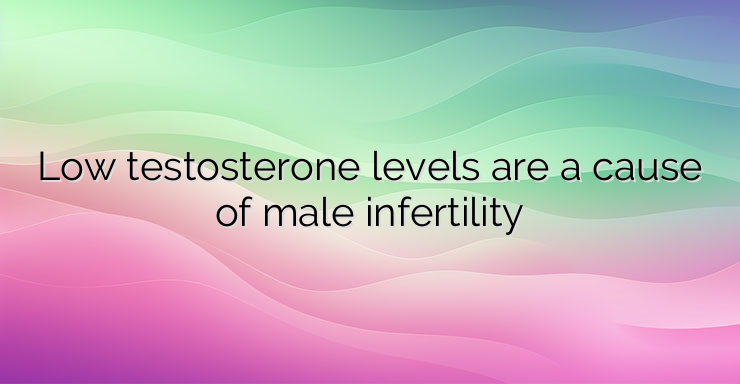Impaired function of the testicles – hypogonadism can be the result of primary congenital disorders in the structure and function of the testicles – hypergonadotropic hypogonadism or appear as a consequence of hypothalamus and pituitary dysfunction – hypogonadotropic hypogonadism. The latter can be congenital or acquired. Acquired hypogonidism is due to: Taking psychoactive substances; Infiltrative processes in the pituitary gland; High levels of prolactin – hyperprolactinemia; Brain injuries; High-intensity physical activity; Taking excessive amounts of alcohol; Systemic diseases such as hemochromatosis, sarcoidosis and others; The characteristic manifestations of hypogonadotropic hypogonadism are the low levels of male sex hormones – androgens and the delay of puberty and sexual maturation. The hypothalamus-pituitary-testes axis is an integrated system that is responsible for the secretion of testosterone and maintenance of optimal spermatogenesis – sperm formation. The effective function of the testicles requires stimulation by the gonadotropic hormones of the pituitary gland, such as the follicle-stimulating hormone (FSH) and the luteinizing hormone (LH). These hormones, in turn, are secreted in response to the release of gonadotropin-releasing hormone from the hypothalamus. Their effect on spermatogenesis is mediated by receptors located on the surface of Leydig and Sertoli cells in the testes. Luteinizing hormone plays a key role in stimulating the secretion of testosterone by the Leydig cells. The latter stimulates the formation of spermatozoa and the development of male genitalia. Functional androgen receptors on the surface of Sertoli cells are key to ensuring optimal spermatogenesis. Follicle-stimulating hormone is important in ensuring the proliferation of progenitor cells of mature spermatozoa. The natural decline of serum testosterone levels and the treatment of hypogonadism require the introduction of testosterone replacement therapy. Anabolic-androgenic steroids are also among the commonly used agents for various reasons in men of various age groups. However, this also leads to hypogonadism. The use of both testosterone replacement therapy and anabolic-androgenic steroids can lead to suppression of the hypothalamic-pituitary-gonadal axis, leading to impaired spermatogenesis and potential infertility. Spontaneous recovery of spermatogenesis after discontinuation is possible, but may take from several months to several years, and in some cases may remain permanently impaired. Another cause of reproductive disorders in men can be thyroid diseases. Both hyperthyroidism and hypothyroidism can have a negative impact on spermatogenesis and male fertility.Hyperthyroidism promotes elevated estrogen levels through increased aromatization of androstenedione and testosterone to circulating estrogens in peripheral tissues. The resulting elevated serum estrogen concentrations suppress the hypothalamic-pituitary-gonadal axis. Additionally, high levels of thyroid hormones impair the proliferation of Sertoli cells, thereby reducing the capacity to form sperm.


Leave a Reply